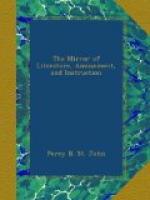[6] The greater part of the
kings, both of Israel and of Judah,
served
strange gods. Under Josiah, as he cleared out
the
Temple,
the book of the laws of Moses was found by Hilkiah
the
priest,
and was delivered to the king, who was much struck
with
the threatenings it contained.
During the seventy years that this captivity lasted, only a few old men survived who had retained any recollection of the laws of Moses. Esdras collected, as far as was possible, the doctrines of Moses; but they were mingled with too many principles which were foreign to them, and some of them may be traced to Zoroaster. The existence of the three sects of the Pharisees, the Sadducees, and Essenes, each of which give a different interpretation of the word of God, abundantly prove this. Hillel and Schamai, a little before the time of Vespasian, had a school. The Rabbi Jonathan Sillai, a pupil of Hillel, exalts his master by saying, “If every tree were a pen, and the whole ocean ink, I should not be able to describe the wisdom I have received from Hillel.” What extravagant expressions! How well do they paint the fanaticism of sectarianism! It was not, however, long, before this blind zeal drew down on the people a punishment from Heaven, by the destruction of Jerusalem under the Roman chief, Titus. Read the work of Flavius Josephus, and you will behold the noble firmness and perseverance of the Israelites on one side, and on the other the melancholy truth, that raving enthusiasm and blind obstinacy precipitated the ruin of the most flourishing people in the world. The last siege and capture of Jerusalem will ever be memorable in the history of mankind. How violent was the exasperation between the two sects of the believers! What firmness and obstinacy in each party, who preferred death and the destruction of the whole nation to yielding up the smallest particle of their different opinions! At that time, there fell, by famine and the sword,




